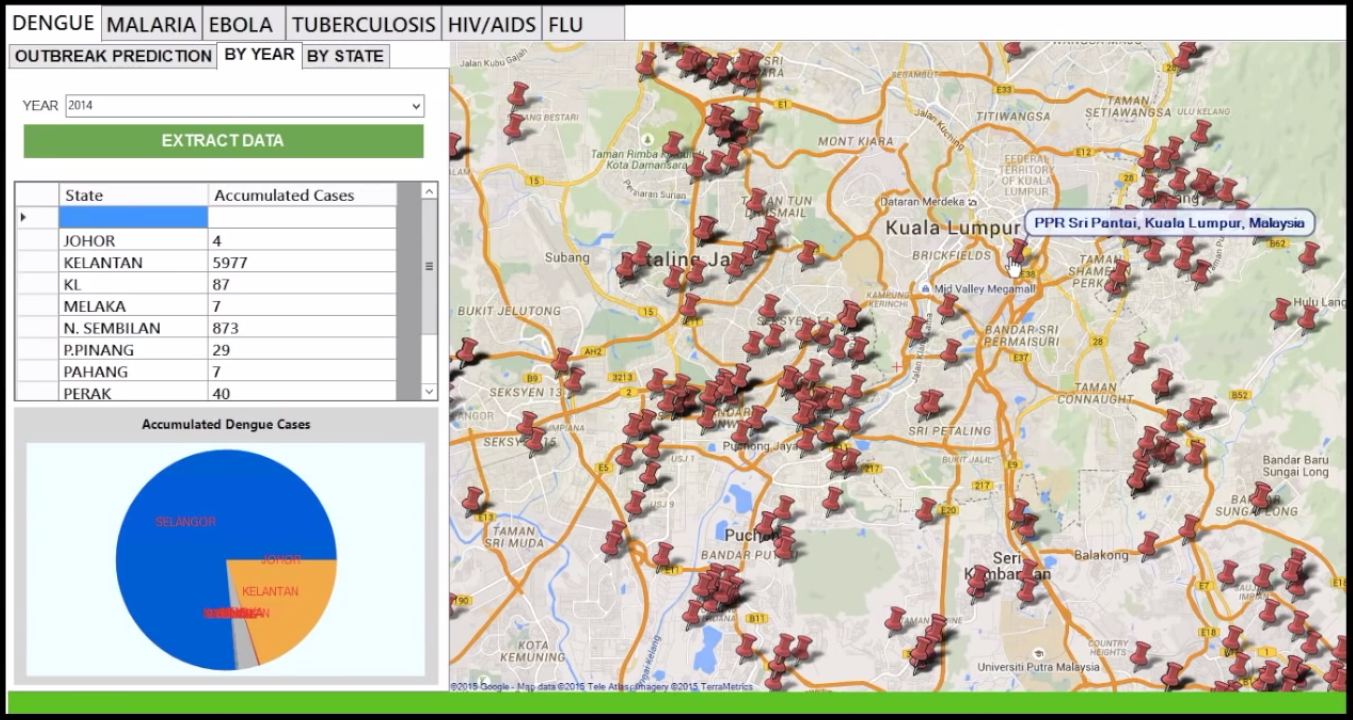Artificial Intelligence and Medical Epidemiology (AIME) is medical startup based in NASA Ames Research Centre that developed a prediction platform for infectious disease outbreaks like malaria, tuberculosis, and HIV. For now, the brains behind this project are focused on dengue.

The research for their flagship dengue prediction platform was started three years ago by an epidemiologist, Dr Dhesi Raja, and computer scientists, Dr Peter Chiung Ching Ho and Dr Choo-Yee Ting – all based in Malaysia. Soon after, other co-founders of AIME came on board – Jamal Robison (US), Zhen Zhang (China/US), and Rainier Mallol (Dominican Republic), according to Startup Daily.
The platform works on a sophisticated algorithm using artificial intelligence that deciphers environmental and epidemiological data to predict areas that are at risk of outbreaks. According to their website, AIME also incorporates a historic mapping of diseases using public health data, as well as rumour reports from social media, and more.
This means that this technology will allow governments to identify specific areas to allocate prevention resources. Right now, Malaysia and many countries battling dengue do so reactively, responding with insecticide and larvacide only after there is a reported case in a specific area. Contrary to that, this prediction service will allow governments to focus on preventative efforts instead, meaning they can be one step ahead and reduce infection rates.

The test project deployed in Malaysia and Brazil returned promising results with the platform successfully predicting outbreaks up to 3 months in advance in a 400 metre radius. In Rio de Janeiro, it was 84.6% accurate in its predictions and 88.7% accurate in Malaysia.
This makes AIME significantly better than Google Flu Trends, which tried and failed to predict flu prevalence, missing the swine flu pandemic in 2009. According to researchers, Google Flu was so inaccurate that it was wrong a total of 100 times out of 108 since August 2011, says Forbes.com. The difference between Google Flu Trends and AIME, Jamal Robinson tells Startup Daily, is that AIME is a marriage of computer science and epidemiology, something Google was lacking.
Dr Dhesi Raja and the rest of the team behind AIME want to turn this prediction programme into a mobile app, which the public can use for free to predict outbreaks in their area. The project is listed on the Malaysian crowdbacking platform webe that will fund AIME with RM250,000 now that the project has reached its crowdbacking goal.
The AIME app is currently being built and the team is hoping to make it available on both Android and iOS for free in October 2016.
"ExpatGo welcomes and encourages comments, input, and divergent opinions. However, we kindly request that you use suitable language in your comments, and refrain from any sort of personal attack, hate speech, or disparaging rhetoric. Comments not in line with this are subject to removal from the site. "




















